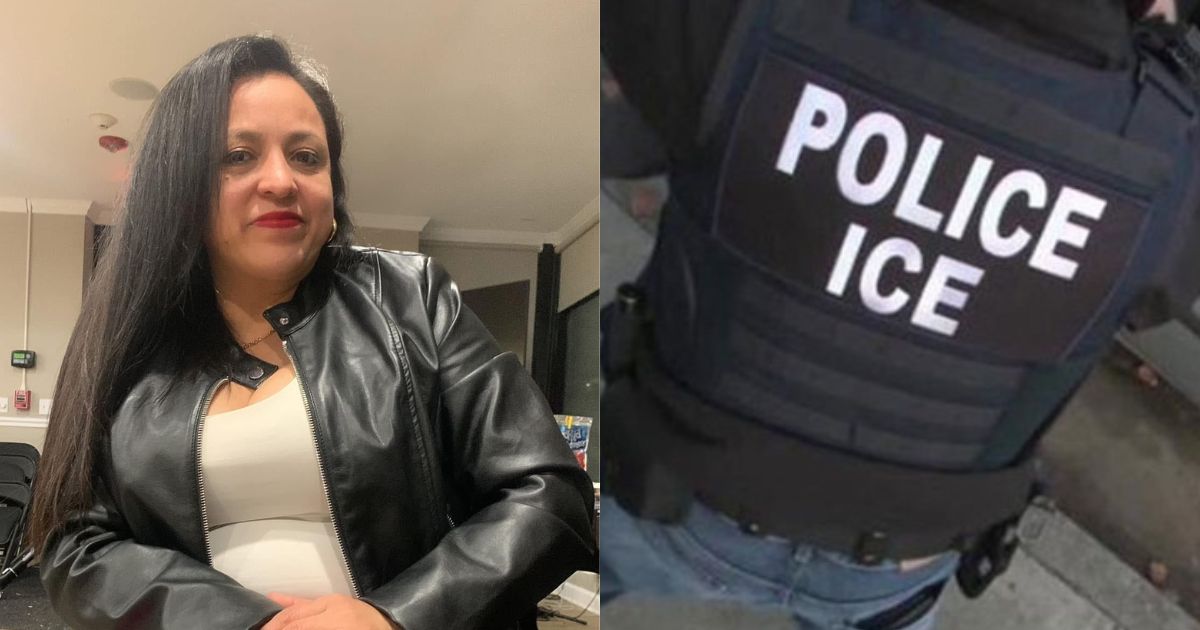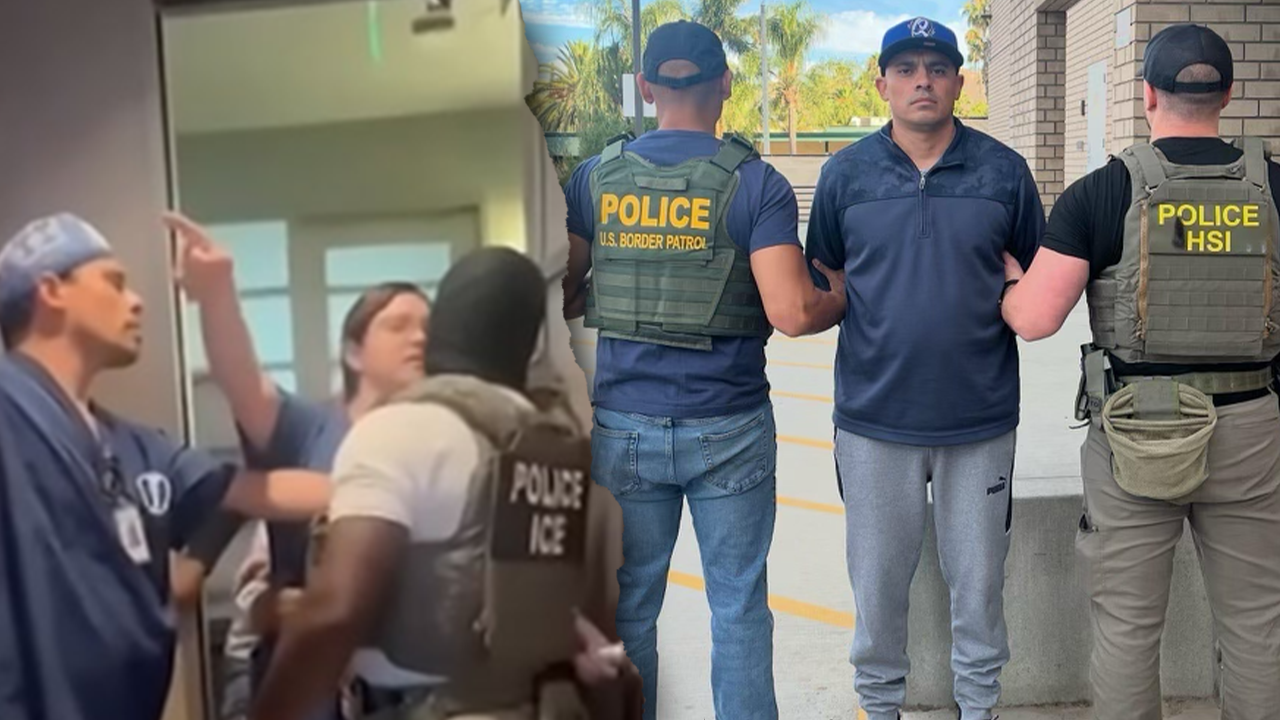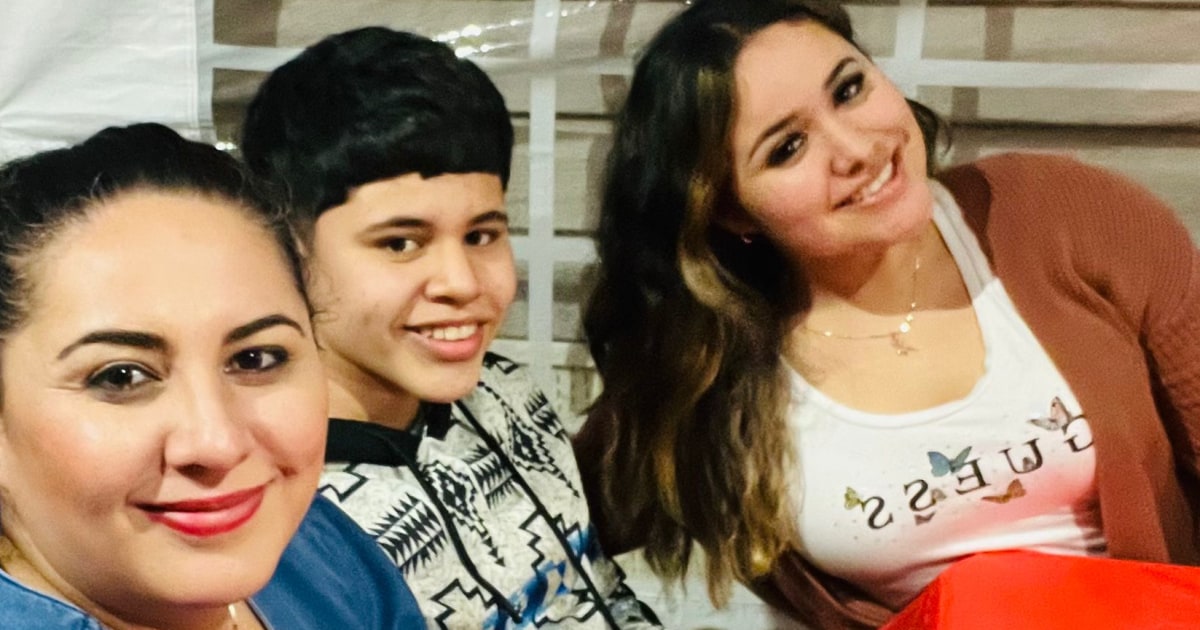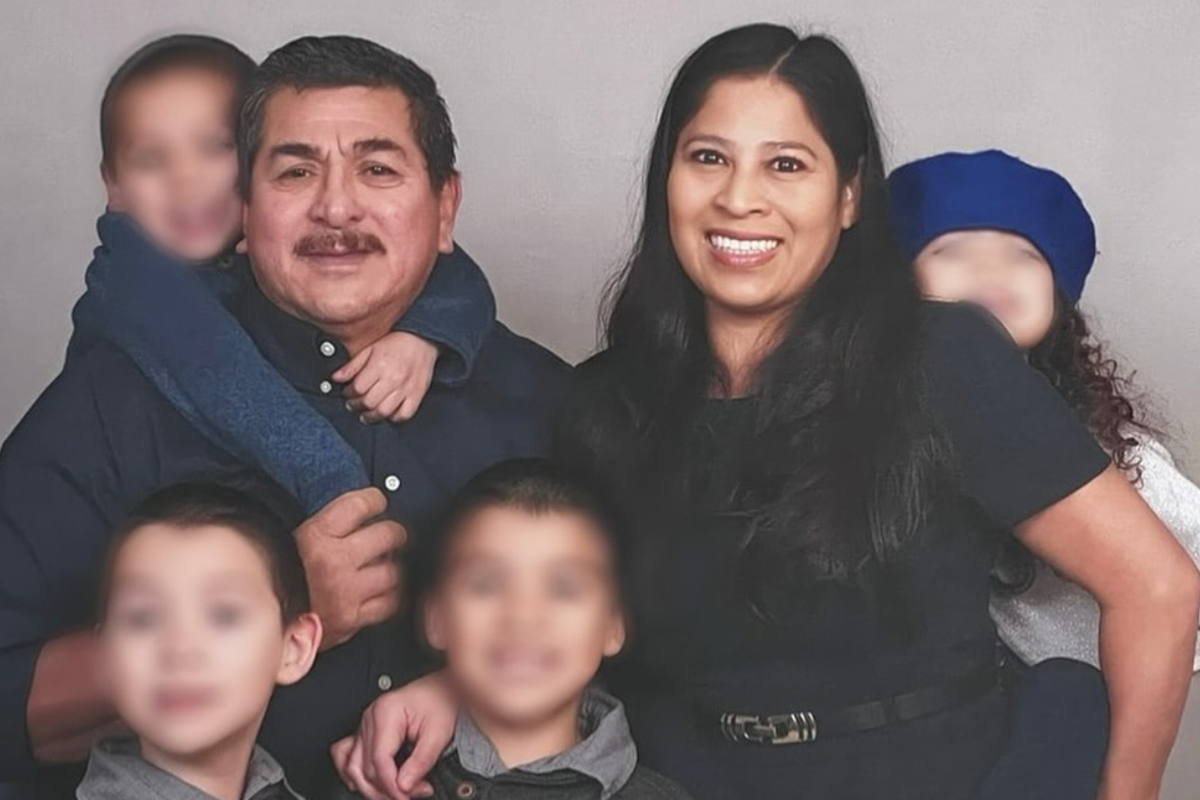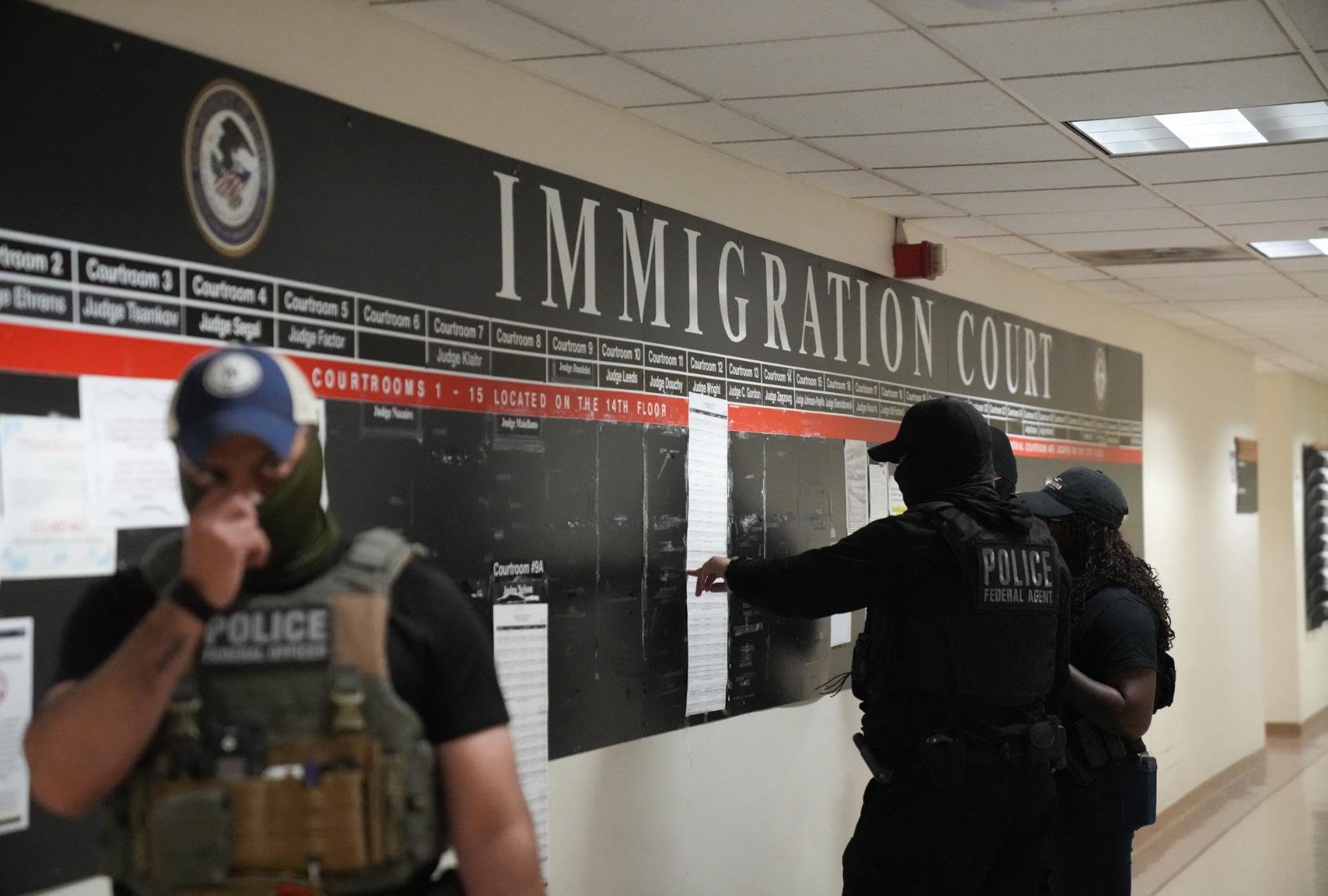President Donald Trump and his appointees have been accused of flouting courts in a third of the more than 160 lawsuits against the administration in which a judge has issued a substantive ruling, a Washington Post analysis has found, suggesting widespread noncompliance with America’s legal system.
Plaintiffs say Justice Department lawyers and the agencies they represent are snubbing rulings, providing false information, failing to turn over evidence, quietly working around court orders and inventing pretexts to carry out actions that have been blocked.
Judges appointed by presidents of both parties have often agreed. None have taken punitive action to try to force compliance, however, allowing the administration’s defiance of orders to go on for weeks or even months in some instances.
Outside legal analysts say courts typically are slow to begin contempt proceedings for noncompliance, especially while their rulings are under appeal. Judges also are likely to be concerned, analysts say, that the U.S. Marshals Service — whose director is appointed by the president — might not serve subpoenas or take recalcitrant government officials into custody if ordered to by the courts.
The allegations against the administration are crystallized in a whistleblower complaint filed to Congress late last month that accused Justice officials of ignoring court orders in immigration cases, presenting legal arguments with no basis in the law and misrepresenting facts. Supreme Court Justice Sonia Sotomayor also chided the administration, writing that Trump officials had “openly flouted” a judge’s order not to deport migrants to a country where they did not have citizenship.
The Post examined 337 lawsuits filed against the administration since Trump returned to the White House and began a rapid-fire effort to reshape government programs and policy. As of mid-July, courts had ruled against the administration in 165 of the lawsuits. The Post found that the administration is accused of defying or frustrating court oversight in 57 of those cases — almost 35 percent.
Legal experts said the pattern of conduct is unprecedented for any presidential administration and threatens to undermine the judiciary’s role as a check on an executive branch asserting vast powers that test the boundaries of the law and Constitution. Immigration cases have emerged as the biggest flash point, but the administration has also repeatedly been accused of failing to comply in lawsuits involving cuts to federal funding and the workforce.
Trump officials deny defying court orders, even as they accuse those who have issued them of “judicial tyranny.” When the Supreme Court in June restricted the circumstances under which presidential policies could be halted nationwide while they are challenged in court, Trump hailed the ruling as halting a “colossal abuse of power.”
“We’ve seen a handful of radical left judges try to overrule the rightful powers of the president,” Trump said, falsely portraying the judges who have ruled against him as being solely Democrats.
His point was echoed Monday by White House spokesman Harrison Fields, who attacked judges who have ruled against the president as “leftist” and said the president’s attorneys “are working tirelessly to comply” with rulings. “If not for the leadership of the Supreme Court, the Judicial Branch would collapse into a kangaroo court,” Fields said in a statement.
Retired federal judge and former Watergate special prosecutor Paul Michel compared the situation to the summer of 1974, when the Supreme Court ordered President Richard M. Nixon to turn over Oval Office recordings as part of the Watergate investigation. Nixon initially refused, prompting fears of a constitutional crisis, but ultimately complied.
“The current challenge is even bigger and more complicated because it involves hundreds of actions, not one subpoena for a set of tapes,” Michel said. “We’re in new territory.”
Questions about whether the administration is defying judges have bubbled since early in Trump’s second term, when the Supreme Court said Trump must allow millions in already allocated foreign aid to flow. The questions intensified in several immigration cases, including high-profile showdowns over the wrongful deportation of an undocumented immigrant who came to the United States as a teenager and was raising a family in Maryland.
The Supreme Court ordered the government to “facilitate” Kilmar Abrego García’s return after officials admitted deporting him to a notorious prison in his native El Salvador despite a court order forbidding his removal to that country. Abrego remained there for almost two months, with the administration saying there was little it could do because he was under control of a foreign power.
In June, he was brought back to the United States in federal custody after prosecutors secured a grand jury indictment against him for human smuggling, based in large part on the testimony of a three-time felon who got leniency in exchange for cooperation. And recent filings in the case reveal that El Salvador told the United Nations that the U.S. retained control over prisoners sent there.
“Defendants have failed to respond in good faith, and their refusal to do so can only be viewed as willful and intentional noncompliance.” U.S. District Judge Paula Xinis, on the government declining to identify officials involved in Kilmar Abrego García’s deportation.
Simon Sandoval-Moshenberg, one of Abrego’s lawyers, said the events prove the administration was “playing games with the court all along.”
Aziz Huq, a University of Chicago law professor, said the case is “the sharpest example of a pattern that’s observed across many of the cases that we’ve seen being filed against the Trump administration, in which orders that come from lower courts are either being slow-walked or not being complied with in good faith.”
In another legal clash, Chief U.S. District Judge James E. Boasberg found Trump officials engaged in “willful disregard” of his order to turn around deportation flights to El Salvador in mid-March after he issued a temporary restraining order against removing migrants under the Alien Enemies Act, which in the past had been used only in wartime.
A whistleblower complaint filed by fired Justice Department attorney Erez Reuveni alleges that Principal Associate Deputy Attorney General Emil Bove told staffers before the flights that a judge might try to block them — and that it might be necessary to tell a court “f— you” and ignore the order.
Bove, who has since been nominated by Trump for an appellate judgeship and is awaiting Senate confirmation, denies the allegations.
In May, U.S. District Judge Stephanie Gallagher, a Trump appointee, opined that the government had “utterly disregarded” her order to facilitate the return of a Venezuelan man who was also wrongfully deported to El Salvador. Like Boasberg, who was appointed by Obama, she is exploring contempt proceedings.
Another federal judge found Trump officials violated his court order by attempting to send deportees to South Sudan without due process. In a fourth case, authorities deported a man shortly after an appeals court ruled he should remain in the U.S. while his immigration case played out. Trump officials said the removal was an error but have yet to return him.
One of the most glaring examples of noncompliance involves a program to provide legal representation to minors who arrived at the border alone, often fearing for their safety after fleeing countries racked by gang violence.
In April, U.S. District Judge Araceli Martínez-Olguín, a Biden appointee, ordered the Trump administration to fund the program. The government delayed almost four weeks and moved to cancel a contract the judge had ordered restarted. While the money was held up, a 17-year-old was sent back to Honduras before he could meet with a lawyer.
Attorneys told the court that the teen probably could have won a reprieve with a simple legal filing. Alvaro Huerta, an attorney representing the plaintiffs in a suit over the funding cuts, said other minors might have suffered the same fate.
“Had they been complying with the temporary restraining order, this child would have been represented,” Huerta said.
Another problematic case involves the Consumer Financial Protection Bureau, an agency created after the 2008 financial crisis to police unfair, abusive or deceptive practices by financial institutions.
A judge halted the administration’s plans to fire almost all CFPB employees, ruling the effort was unlawful. An appeals court said workers could be let go only if the bureau performed an “individualized” or “particularized” assessment. Four business days later, the Trump administration reported that it had carried out a “particularized assessment” of more than 1,400 employees — and began an even bigger round of layoffs.
CFPB employees said in court filings that the process was a sham directed by Elon Musk’s U.S. DOGE Service. Employees said counsel for the White House Office of Management and Budget told them to brush off the court’s required particularized assessment and simply meet the layoff quota.
“All that mattered was the numbers,” said one declaration submitted to U.S. District Judge Amy Berman Jackson, an Obama appointee.
Jackson halted the new firings, accusing the Trump administration of “dressing” its cuts in “new clothes.”
“There is reason to believe that the defendants … are thumbing their nose at both this Court and the Court of Appeals.” U.S. District Judge Amy Berman Jackson on the government’s attempt to carry out firings at the Consumer Financial Protection Bureau despite a court order blocking the move.
David Super, a Georgetown law professor, said the government has used the same legal maneuver in a number of cases. “They put out a directive that gets challenged,” Super said. “Then they do the same thing that the directive set out to do but say it’s on some other legal basis.”
He pointed to January, when OMB issued a memo freezing all federal grants and loans. Affected groups won an injunction. The White House quickly announced it was rescinding the memo but keeping the freeze in place.
Justice Department attorneys argued in legal filings that the government’s action rendered the injunction moot, but the judge said it appeared it had been done “simply to defeat the jurisdiction of the courts.”
“It appears that OMB sought to overcome a judicially imposed obstacle without actually ceasing the challenged conduct. The court can think of few things more disingenuous.” U.S. District Judge Loren L. AliKhan on the Trump administration arguing a court order blocking a freeze on federal grants was moot because it had rescinded a memo.
In another case, a judge blocked the administration from ending federal funds for programs that promote “gender ideology,” or the idea that someone might identify with a gender other than their birth sex, while the effort was challenged in court. The National Institutes of Health nevertheless slashed a grant for a doctor at Seattle Children’s Hospital who was developing a health education tool for transgender youth.
The plaintiffs complained it was a violation of the court order, but the NIH said the grant was being cut under a different authority. Whistleblowers came forward with documents showing that the administration had apparently carried out the cuts under the executive order that was at the center of the court case.
U.S. District Judge Lauren King, a Biden appointee, said the documents “have raised substantial questions” about whether the government violated her preliminary injunction and ordered officials to produce documents. The government eventually reinstated the grant.
In a different case, U.S. District Judge Ana Reyes, a Biden appointee, was unsparing in her decision to place a hold on the Trump’s administration’s ban on transgender people serving in the military, saying the order was “soaked in animus.”
Then the government issued a new policy targeting troops who have symptoms of “gender dysphoria,” the term for people who feel a mismatch between their gender identity and birth sex, and asked Reyes to dissolve her order.
Reyes was stunned. Trump and Defense Secretary Pete Hegseth had made repeated public statements describing the policy as a ban on transgender troops. Hegseth had recently posted on X: “Pentagon says transgender troops are disqualified from service without an exemption.”
“I am not going to abide by government officials saying one thing to the public — what they really mean to the public — and coming in here to the court and telling me something different, like I’m an idiot,” the judge told the government’s lawyer. “The court is not going to be gaslit.”
Courts have traditionally assumed public officials, and the Justice Department in particular, are acting honestly, lawfully and in good faith. Since Trump returned to the White House, however, judges have increasingly questioned whether government lawyers are meeting that standard.
“The pattern of stuff we have … I haven’t seen before,” said Andrew C. McCarthy, a columnist for the conservative National Review and a former federal prosecutor. “The rules of the road are supposed to be you can tell a judge, ‘I can’t answer that for constitutional reasons,’ or you can tell the judge the truth.”
A Struggle for Accountability
While many judges have concluded that the Trump administration has defied court orders, only Boasberg has actively moved toward sanctioning the administration for its conduct. And he did so only after saying he had given the government “ample opportunity” to address its failure to return the deportation flights to El Salvador.
“The Constitution does not tolerate willful disobedience of judicial orders — especially by officials of a coordinate branch who have sworn an oath to uphold it.” U.S. District Chief Judge James E. Boasberg, when moving to sanction the Trump administration.
The contempt proceedings he began were paused by an appeals court panel without explanation three months ago. The two judges who voted for the administrative stay were Trump appointees.
On Friday, the Trump administration brokered a deal with El Salvador and Venezuela to send the Venezuelan deportees at the heart of Boasberg’s case back to their homeland, further removing them from the reach of U.S. courts.
A contempt finding would allow the judge to impose fines, jail time or additional sanctions on officials to compel compliance.
In three other cases, judges have denied motions to hold Trump officials in contempt, but reiterated that the government must comply with a decision, or ordered the administration to turn over documents to determine whether it had violated a ruling. Judges are considering contempt proceedings in other cases as well.
Most lawsuits against the administration have been filed in federal court districts with a heavy concentration of judges appointed by Democratic presidents. The vast majority of judges who have found the administration defied court orders were appointed by Democrats, but judges selected by Presidents Ronald Reagan and George W. Bush have also found that officials failed to comply with orders. Most notably, at least two Trump picks have raised questions about whether officials have met their obligations to courts.
Legal experts said the slow pace of efforts to enforce court orders is not surprising. The judicial system moves methodically, and judges typically ratchet up efforts to gain compliance in small increments. They said there is also probably another factor at work that makes it especially difficult to hold the administration to account.
“The courts can’t enforce their own rulings — that has to be done by the executive branch,” said Michel, the former judge and Watergate special prosecutor.
He was referring to U.S. Marshals, the executive branch law enforcement personnel who carry out court orders related to contempt proceedings, whether that is serving subpoenas or arresting officials whom a judge has ordered jailed for not complying.
Former judges and other legal experts said judges might be calculating that a confrontation over contempt proceedings could result in the administration ordering marshals to defy the courts. That type of standoff could significantly undermine the authority of judges.
The Supreme Court’s June decision to scale back the ability of lower courts to issue nationwide injunctions, and the administration’s success at persuading the justices to overturn about a dozen temporary blocks on its agenda in recent months, might only embolden Trump officials to defy lower courts, several legal experts said.
Sotomayor echoed that concern in a recent dissent when she accused the high court of “rewarding lawlessness” by allowing Trump officials to deport migrants to countries that are not their homelands. The conservative majority gave the green light, she noted, after Trump officials twice carried out deportations despite lower court orders blocking the moves.
“This is not the first time the court closes its eyes to noncompliance, nor, I fear, will it be the last,” Sotomayor wrote. “Yet each time this court rewards noncompliance with discretionary relief, it further erodes respect for courts and for the rule of law.”
Two months after a federal court temporarily blocked Trump’s freeze on billions in congressionally approved foreign aid, an attorney for relief organizations said the government had taken “literally zero steps to allocate this money.”
Judge Amir Ali, a Biden appointee, has ordered the administration to explain what it is doing to comply with the order. Trump officials have said they will eventually release the funds, but aid groups worry the administration is simply trying to delay until the allocations expire in the fall.
Meanwhile, about 66,000 tons of food aid is in danger of rotting in warehouses, AIDS cases are forecast to spike in Africa and the government projected the cuts would result in 200,000 more cases of paralysis caused by polio each year. Already, children are dying unnecessarily in Sudan.
Such situations have prompted some former judges to do something most generally do not — speak out. More than two dozen retired judges appointed by Republican and Democratic presidents have formed the Article III Coalition to push back on attacks and misinformation about the courts.
Robert J. Cindrich, who helped found the group, said the country is not yet in a constitutional crisis but that the strain on the courts is immense. Citing the administration’s response to orders, as well as its attacks on judges and law firms, Cindrich said, “The judiciary is being put under siege.”

